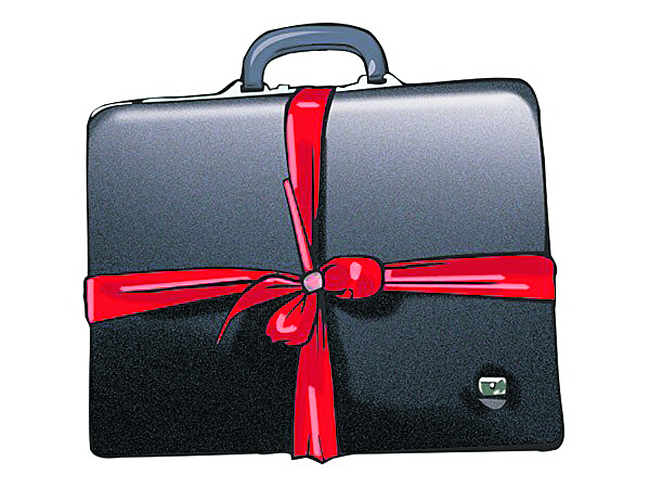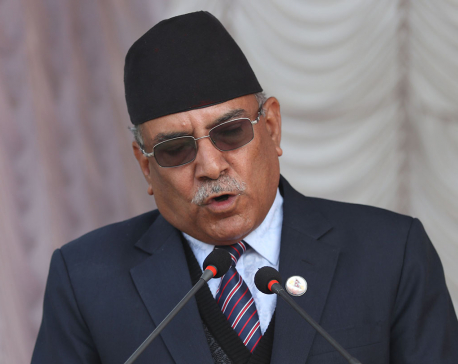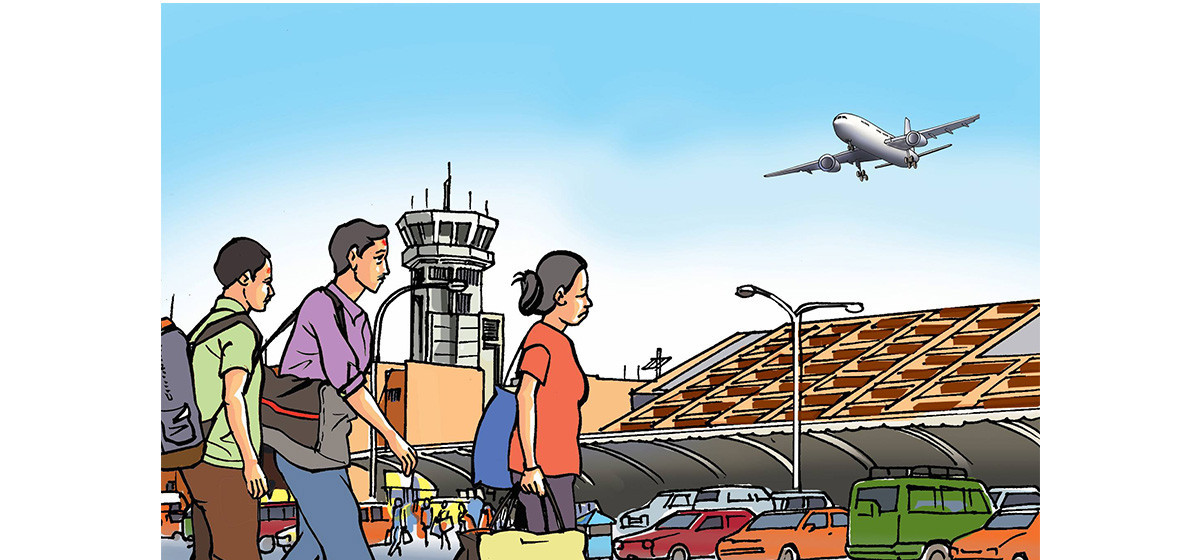
OR
Govt introduces flexible tax policy for small businesses
Published On: May 29, 2020 06:30 PM NPT By: RAJESH KHANAL

KATHMANDU, May 29: The budget for fiscal year 2020/21 unveiled by the government on Thursday was expected to restructure the tax system largely along with revising income tax slabs to invigorate the economic activities that have been largely hit by the over two months of the nationwide lockdown.
The budget came up with no room for variation in individual income tax structure. Nonetheless, it has awarded the micro and small enterprises high priority and provided the sector a respite from the COVID-19 distress through lenient measures in taxation. Tax is one of the main tools that give the government a major source of revenue while it is also one of the mechanisms to boost up the aggregate demand of the economy that is reeling under recession.
According to the Federation of Nepalese Chambers of Commerce and Industry (FNCCI), more than 1.5 million individuals have lost their jobs following the lockdown enforced since March 24. So, the government has projected that poverty will increase by two point percent, obviously hitting the consumption demand. The umbrella organizations of the private sector had been pressing the government to introduce a ‘more flexible’ income tax policy through the budget.
Shekhar Golchha, senior vice-president of FNCCI, said the government had seemingly focused too much on introducing a “balanced budget” and “maybe it was reluctant to turn flexible in terms of taxation” as it is under high pressure to manage adequate financial resources. “However, the budget has left very little room for boosting the businesses that are taken down heavily by the threat of coronavirus,” said Golchha.
Kamlesh Kumar Agrawal, vice president of Nepal Chamber of Commerce, said the government could have considered extending the tax bracket for the low income households which struggled to meet their daily requirements during this crisis. “The bright side of the budget is that it has at least introduced some relief measures for micro and small businesses,” he added.
The budget has offered heavy income tax exemption to small and cottage industrialists. It has exempted income tax of up to 75% for businesses with annual transactions of up to Rs 2 million.
Likewise, the government has announced a 50 percent waiver on income tax for businesses whose annual transaction is between Rs 2 million and Rs 5 million, while 25 percent exemption has been granted to businesses with annual transactions amounting to Rs 5 to Rs 10 million. The income tax exemption period for small businesses has been extended by two years to seven years, while the exemption period for women-run enterprises has been extended by three years to 10 years.
To facilitate the industrial units operating in the industrial areas, such industrial units will receive a 25 percent discount on income tax for five years. The government has slashed the customs tax on the import of machinery and raw materials required for small and cottage industries, agriculture, livestock, veterinary and mask production. Similarly, the customs tax on the seeds of paddy, maize, wheat and vegetables has also been reduced. The government has also exempted VAT on the import of raw materials required for producing medicines as well as the raw materials of ayurvedic medicines.
In addition, airline companies, transportation companies, hotels, travel and trekking agencies will receive a 20 percent exemption on income tax of the current fiscal year. The government has also removed infrastructure development tax on aviation fuel while slashing all airport service charges for aircraft during the lockdown period and flight restrictions.
The government, however, has increased the taxes on petrol, diesel, gold, alcohol and cigarettes. In the revised rate, imported alcohol will be dearer by Rs 300 per litre and gold will be expensive by Rs 2,000 per 10 grams.
You May Like This

Govt should not overlook its weakness: Dahal
RUPANDEHI, Jan 6: Ruling Nepal Communist Party chairperson Pushpa Kamal Dahal has said that the government should not overlook its... Read More...

Sujata Koirala charges govt with failure to deliver
KATHMANDU, Nov 22: Main opposition Nepali Congress leader Sujata Koirala today accused the incumbent government of failure to deliver to... Read More...



Just In
- 550,000 people acquire work permits till April of current fiscal year
- Fixing a win by outlawing dissent damages democracy
- MoHP cautions docs working in govt hospitals not to work in private ones
- Over 400,000 tourists visited Mustang by road last year
- 19 hydropower projects to be showcased at investment summit
- Global oil and gold prices surge as Israel retaliates against Iran
- Sajha Yatayat cancels CEO appointment process for lack of candidates
- Govt padlocks Nepal Scouts’ property illegally occupied by NC lawmaker Deepak Khadka









_20220508065243.jpg)



Leave A Comment